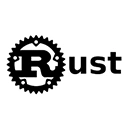Rust has a vibrant ecosystem of tools that enhance the development experience, improve productivity, and help manage projects effectively. This guide will explore some of the most popular tools for Rust development, including their features and how to use them.
1. Cargo
Cargo is the official package manager and build system for Rust. It simplifies the process of managing dependencies, building packages, and running tests. Cargo is an essential tool for any Rust developer.
Key Features of Cargo
- Dependency management: Easily add, update, and remove dependencies in your project.
- Building and running: Compile your code and run your applications with simple commands.
- Testing: Run unit tests and integration tests with built-in support.
- Publishing: Publish your crates to
crates.io, the Rust community's package registry.
Example of Using Cargo
# Create a new Rust project
cargo new my_project
# Navigate to the project directory
cd my_project
# Build the project
cargo build
# Run the project
cargo run
# Run tests
cargo test
2. rustfmt
rustfmt is a tool for formatting Rust code according to the official style guidelines. It helps maintain consistent code style across projects and improves readability.
Key Features of rustfmt
- Automatic formatting: Format your code with a single command.
- Customizable: Configure formatting options in a
rustfmt.tomlfile. - Integration: Can be integrated with IDEs and editors for real-time formatting.
Example of Using rustfmt
# Install rustfmt
rustup component add rustfmt
# Format a Rust file
rustfmt src/main.rs
# Format the entire project
cargo fmt
3. Clippy
Clippy is a linter for Rust that provides helpful suggestions for improving your code. It catches common mistakes and enforces best practices, making your code more idiomatic and efficient.
Key Features of Clippy
- Linting: Identify potential issues and suggest improvements.
- Customizable: Enable or disable specific lints based on your preferences.
- Integration: Can be run alongside
cargocommands for seamless usage.
Example of Using Clippy
# Install Clippy
rustup component add clippy
# Run Clippy on your project
cargo clippy
4. Rust Analyzer
Rust Analyzer is a language server for Rust that provides features like code completion, inline documentation, and real-time error checking. It enhances the development experience in various IDEs and editors.
Key Features of Rust Analyzer
- Intelligent code completion: Get suggestions as you type.
- Real-time diagnostics: See errors and warnings immediately.
- Refactoring support: Easily rename variables, extract functions, and more.
Example of Using Rust Analyzer
To use Rust Analyzer, install it as an extension in your preferred IDE, such as Visual Studio Code:
# Install Rust Analyzer in Visual Studio Code
# Search for "Rust Analyzer" in the Extensions Marketplace and install it.
5. IDEs and Editors
Several IDEs and text editors provide excellent support for Rust development. Some popular options include:
- Visual Studio Code: A lightweight editor with Rust Analyzer support.
- IntelliJ Rust: A powerful IDE with comprehensive Rust support.
- Atom: A hackable text editor with Rust packages available.
- Emacs: A customizable editor with Rust mode for syntax highlighting and more.
- Vim: A highly configurable text editor with Rust plugins for enhanced functionality.
6. Conclusion
Rust development is greatly enhanced by a variety of tools that streamline the coding process, enforce best practices, and improve code quality. Tools like Cargo, rustfmt, Clippy, and Rust Analyzer are essential for any Rust developer looking to build efficient and maintainable applications. By leveraging these tools, you can focus more on writing code and less on managing the development environment.

